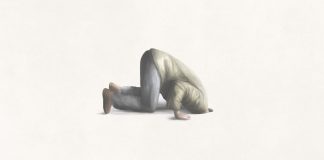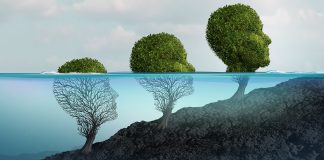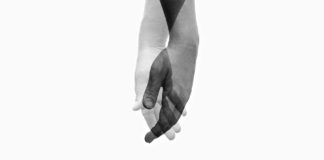No tomorrow morning: the unexpected consequences of a disturbing law
In front of the camera, the woman smiles calmly. The dimple on her right cheek, among the wrinkles, shows that Annie has repeated this smile many times in her 81 years of life. Today, however, only her lips are smiling. A strange tension weighs on her eyebrows. Today is the day Annie has decided to die.
Running against our own potential
If we were to liken life to the Olympics, then we would easily understand two fundamental things: you can’t score first in all the tests and, even in the areas where you are very capable, you can win by doing less than your best if those you compete against are not much of a challenge.
COVID-19: Forgiveness in isolation
When we are isolated with our family, problems that are sometimes easy to ignore become more acute, and the need to receive and offer forgiveness to those around us becomes increasingly evident.
The dance of the “wolves”
Beyond the artistic accolades of "The Wolf of Wall Street" lies a troubling “recognition”—that of the real man who inspired the character Jordan Belfort and who, after 22 months in prison, presented his exploits in an autobiographical book.
Becoming truth tellers on post-truth social media
American President Joe Biden was obviously upset with Meta when, in mid 2021, he accused it of “killing people” for its seeming tolerance of so much Covid-19 misinformation. He backed down a little by clarifying that he wasn’t blaming Facebook itself, but the “bad information” they allowed on the site. Other have argued we live in a post-truth world.
From hostages to fear tamers
“Am I still human if I’m afraid?” The question asked by a well-known fictional character can be the starting point for reflecting on how we learn to live with our fears.
Argumentum Ad Hominem or how you attack yourself when attacking others
In an argumentative discussion each party involved must be able to express their point of view without constraints, discrimination or other interferences. This is, in fact, an important prerequisite for the effort to overcome differences of opinion. In practice however, often things are far from this ideal. Not only do interlocutors not respect each other’s right to free speech, but they also resort...
COVID-19 and our low-risk but endangered children
All COVID-19 statistics lead to the same conclusion: the young ones, our children, are at the lowest risk of getting ill or dying from the virus. That’s comforting. But the pandemic does pose a certain danger to them.
Happiness left behind
“A calm and modest life brings more happiness than the pursuit of success combined with constant restlessness.”
Finding myself. How do I find out who my true self is?
The movie Nomadland, which was awarded Best Motion Picture (Drama) at the 78th edition of the Golden Globes, is a poem; a poem following a rhythm ever more strange to the lives that we—those who have climbed onto the carousel of adult life and have discovered that we are no longer free to get off—are so used to.
I’m the only one who can solve my problems: True or false?
The problems that arise in our lives are nothing more than cognitive obstacles that we don't immediately have the skills to overcome. The most important question when we get stuck is: do I ask for help or do I solve my problems myself?
Marital incompatibility, and how to avoid it
Our moral problem is man’s indifference to himself… We experience and treat ourselves as commodities, and [as if] our own powers have become alienated from ourselves… We are a herd believing that the road we follow must lead to a goal since we see everybody else on the same road. We are in the dark and keep up our courage because we hear...
Journal entry
I remember precisely the moment and the place where I realized that I was free to choose what kind of person I want to be. However, this construction requires courage, suitable materials and the perseverance of not leaving the project in ruins when there are deviations from the plan.
A cure for loneliness
At the age of 34, Joseph already has his own business, into which he has invested much of his soul and talent. He is a carpenter, and the personality of the pieces he carves, chisels, polishes, and paints with his hands stands out beautifully. With each order he sends to a customer, Joseph takes some time to send a handwritten thank-you note. On...
Jealousy, the enemy of a balanced relationship
Whether seen as a sign of true love or of a lack of trust in one's partner, jealousy is a range of states and behaviours attributed to romantic relationships. In reality, it also appears in other types of interactions, revealing the inclinations of the person who feels it, but also the quality of the relationship that generates it.


























